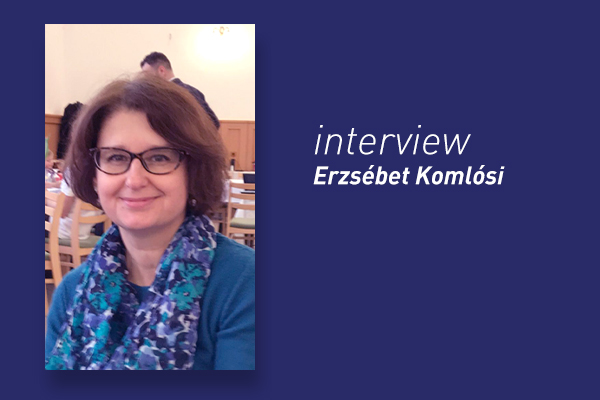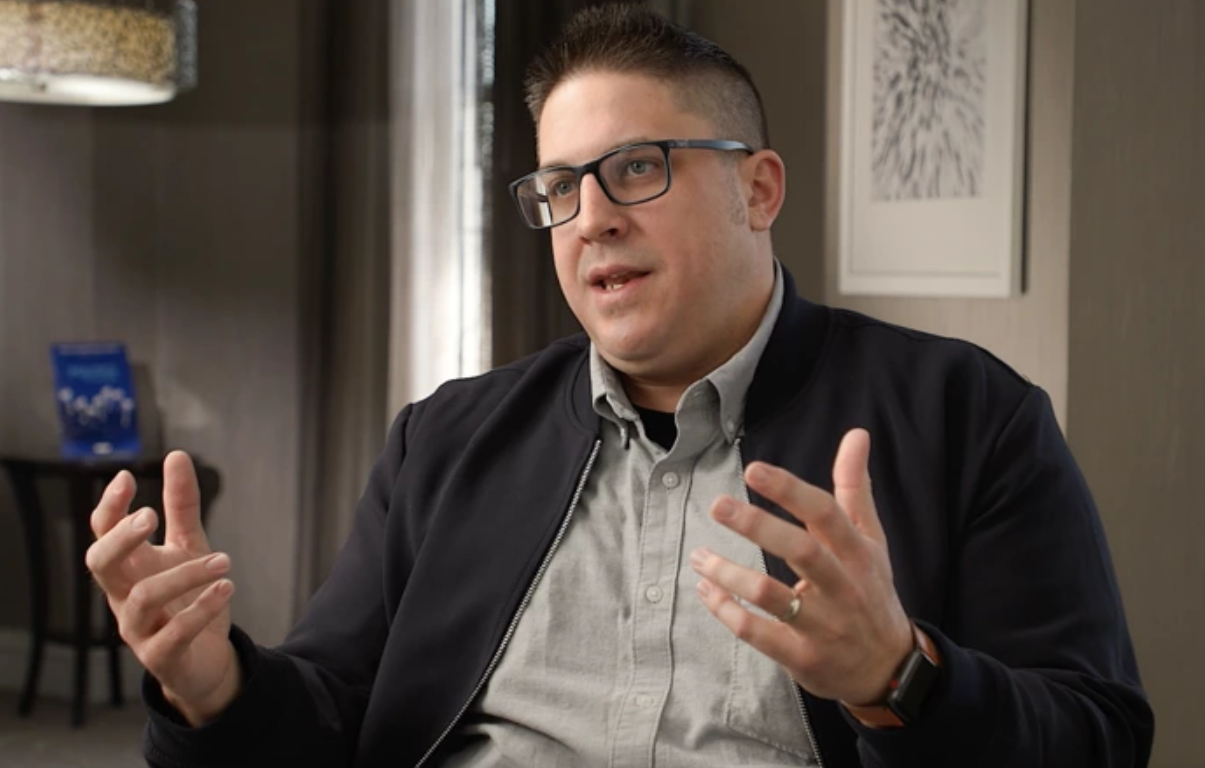As part of our overarching communication theme “Bible Engagement” in the first half of 2021, readers of the EEA Newsletter are being presented with a variety of perspectives on this topic in several issues of the EEA Newsletter. We are very pleased that Erzsébet Komlósi, Field Development Director for Europe with Scripture Union International, has agreed to answer some of our questions. Scripture Union is a global movement with the aim to “make God’s Good News known to children, young people and families, and encourage people of all ages to meet God daily through the Bible and prayer”. Its European branch is an Affiliate Member of the European Evangelical Alliance.
- How is the topic of “Bible engagement” reflected in your work and what is particularly important to you when engaging with the Bible?
We at Scripture Union are passionate about Bible engagement, as we firmly believe that it is impossible to reach out in mission and help people in their journey with Christ without pointing them to God’s Word and helping them to explore it. I would say, our role is similar to Philip’s, who asked a very important question from the Treasurer of Ethiopia as he was reading part of the Scriptures on his way home from Jerusalem: “Do you understand what you are reading?” (Acts 8:30) And we know the rest of the story. The same way, we want to come alongside children, young people and adults to help them understand the message of God’s Word to them.
When it comes to Bible engagement, our Aims, Beliefs and Working Principles says, among other things: “We are committed to Bible engagement which is thoughtful, prayerful and regular and which enables the reader to respond to the message of the whole Bible rather than to isolated passages.” Many of our SU movements in Europe publish daily Bible reading notes to children, young people and adults that help facilitate this regular encounter with God through His Word. But Bible engagement can be much broader than helping individuals meet God through daily Bible-reading. We also organize activities, where we can enjoy exploring God’s Word together – camps, holiday clubs, school groups, just to name a few, studying the Scriptures in an interactive, creative and fun way. (This last word is especially important, when you are among children and young people! 🙂)
- How has the work of Scripture Union in Europe changed after the Covid outbreak?
It was quite a shock to all of our movements. Our field ministry, our face to face activities had to stop. It has been a challenging season for all of us, and it is not over yet. But we did not have much time “to lick our wounds”, as we had to realize very soon, that the people we had been serving were still out there, and they needed God’s Word more than ever, so if the old ways of getting to them are not viable anymore, we have to find new ways to reach them under these new and scary circumstances. Many new initiatives have been born during the time of the pandemic. In Slovakia, SU started to produce video lessons that can be shown in virtual Sunday schools for children, that churches can use. SU France has prepared weekly ideas in the form of short video clips on their YouTube channel on how families can pray together creatively even in confinement. In German-speaking Switzerland SU staff have been leading weekly Bible reading groups on Zoom, which is free to join to anyone interested. They have different groups for children, teenagers and adults… I could mention many more examples. Our Creator is a God of creativity, and I have been able to witness how He gave our local movements new ideas for helping churches and individuals in this new reality they find themselves in. (If you are interested, you may want to check out some of our free creative Bible engagement resources for families and individuals in lockdown here: https://scriptureunion.global/covid-19/)
- How would you say engagement with the Bible has changed over the past year, especially for youth? What are threats and opportunities for consistent and in-depth Bible study that you see in the developments of the past year?
Let us start with the obvious: life is tough for everyone on every level. As for young people: schools close and open, close again and reopen, everyday routines are often changed overnight. Daily Bible reading and personal quiet times that require a dose of discipline are a challenge for many, especially to those who are new to it. Under normal circumstances we put a great emphasis on studying the Bible together, in groups, which whets the appetite for young people to go for more – to dig deeper in God’s Word for themselves. Sadly, this is not possible in most of our European countries under the current restrictions. Again, we try to do what is still possible: Many of our SU movements organize Bible studies online, one-on-one or for groups. Almost all of them send out daily Bible messages to their volunteers and young readers using Facebook, WhatsApp and other social media channels. As I mentioned before, some have Zoom Bible reading groups. But it is not easy. As young people have to spend so much of their time in front of screens day by day with digital education, they often feel too tired to take part in yet another Zoom/Skype/Teams meeting… Zoom fatigue is real, especially for this generation. We need to pray for them and offer help and mentoring more on an individual basis, I think, by ringing them up for instance, and asking them how they are doing in this respect, too. At the same time let us not be overly pessimistic: If we had had such a pandemic 30 years ago, we would not have had all these tools to stay in touch, or Bible reading apps on our mobile phones that also include the features that enable us to share and connect with other Bible “explorers”. We have a wealth of opportunities that we can use, if we want to. The big question is not whether we have the tools, but if we and our young people have the desire to use these tools to connect with God through His Word.
- Scripture Union has a strong focus on nurturing and growing young leaders. What can young leaders contribute to encourage Bible engagement?
I think the most important way to do that would be leading by example. Young leaders have a way of showing the importance of love and commitment to God’s Word to the ones who are even younger than them that is unique. Have you noticed, that most magazines for children have slightly older, pre-teen kids on their cover? And the same goes for older age groups – for teens, they would have college age young people as illustrations. This is because we all tend to look to those with the greatest curiosity, who are a step ahead of us – in age, in experience. Not too many steps ahead, so the gap would not be too big, but just enough to make us interested. This principle translates really well to our topic on Bible engagement. When I was a teenager, one of the greatest inspirations for seeking God regularly through Bible reading and prayer was to have some enthusiastic university students as group leaders at summer camps that I attended. Their love for God and His Word was contagious and made a great impression on me. This was not at a Scripture Union camp (we did not have SU in Hungary back in those days), but thinking back to it, it could have been… Many of our leaders at SU Bible camps started off as campers themselves. They become junior leaders when they become a bit older and more mature in faith, and are given more and more leadership responsibilities as they grow. God can use young people in a wonderful way.
- What can young leaders contribute to the Evangelical Alliance? How can we encourage young leaders to join our ministries and alliances?
Young people can contribute a lot. Their fresh ideas, enthusiasm and often “out of the box” thinking can be a breath of fresh air among older leaders. If we want to attract them to join our Evangelical Alliances they need to be heard. They need to be taken seriously. And we need to express that we dare to trust them with responsibilities. But we have to do this in an authentic way. Their antennae are very sensitive, and they will sense it from a mile if we are only doing this because this is the next “politically correct” thing to do on our agenda!
At the same time, not many of us are born leaders. If we are in a leadership position now, it is probably down to the fact that God brought some older and more mature people in our lives who saw a potential in us, trusted us and encouraged us: “Go ahead, you can do it, girl/boy!” They cheered us on, prayed for us and lovingly corrected us, when it was needed. If we can be such a friend now to at least one young person around us, we are investing in the future of our ministry, and ultimately, in God’s Kingdom.
The article was originally posted here
European Evangelical Alliance is the European section of the World Evangelical Alliance




